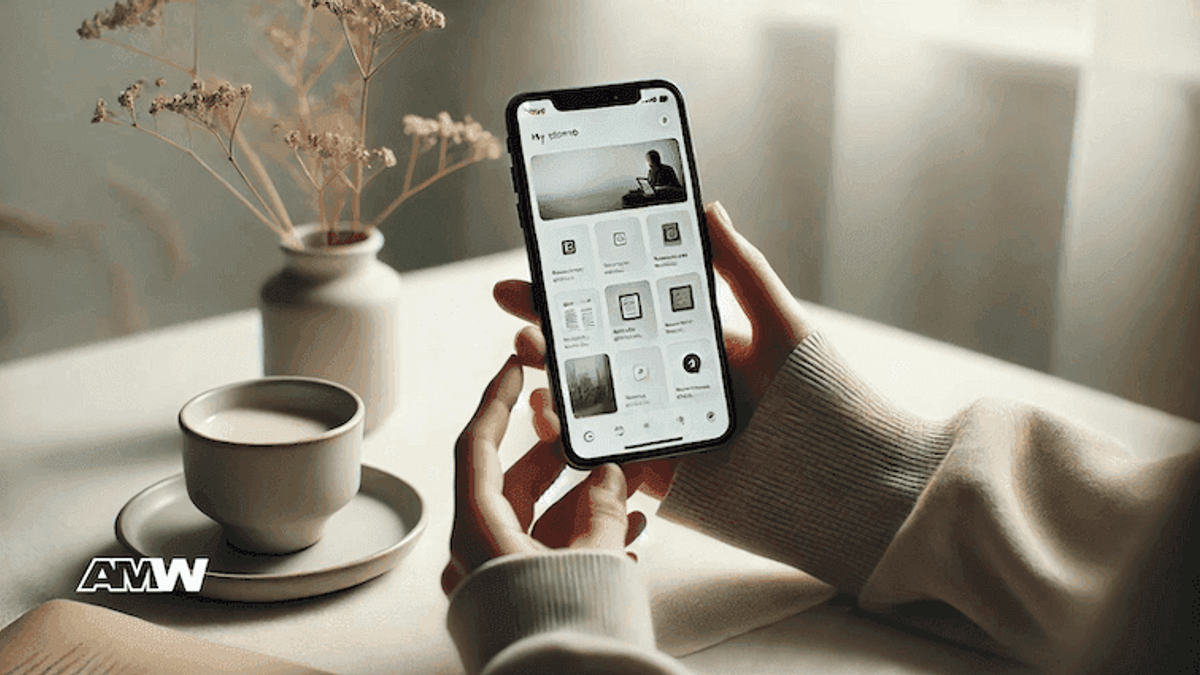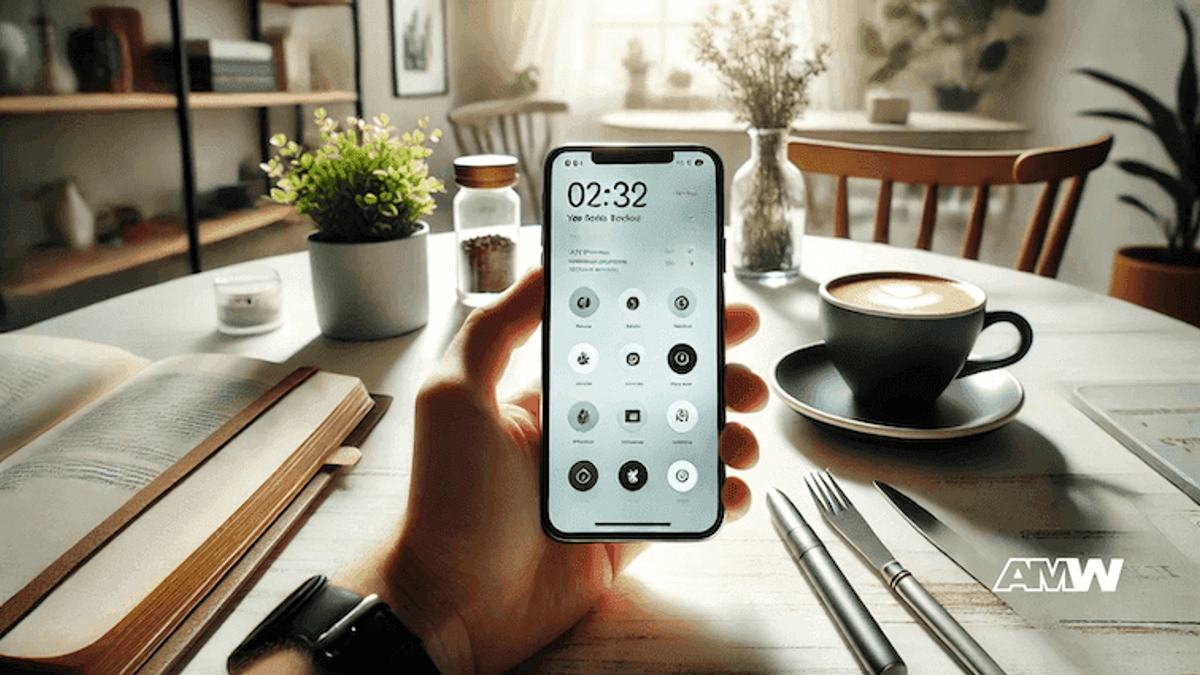The Ultimate Guide to Mobile Content Marketing

Mobile content marketing has become an important component of a successful marketing strategy.
Quick Summary
Mobile content marketing is essential for connecting with a growing audience who primarily use smartphones for internet access. To effectively engage these users, businesses must optimize content for mobile devices, focusing on aspects like responsive design, speed, and personalization. Strategies such as SMS marketing, mobile apps, and effective social media posts can enhance visibility and engagement. Continuously measuring campaign performance and adapting to trends ensures relevance in a rap
Content marketing for apps is essential for enhancing app visibility and user engagement.
As more people use mobile devices, businesses are figuring out they need to change how they do content marketing to really connect with mobile users.
Ready to Grow Your Business?
Get a custom strategy tailored to your goals.
This blog post explores a variety of ideas that can enhance understanding of mobile content marketing.
Remember, while this blog post offers some insights, conducting your own research is essential to tailor these ideas to specific objectives and target audiences.
Understanding Mobile Content Marketing

Mobile content marketing refers to the practice of creating and distributing valuable content designed specifically for mobile devices.
As mobile phones and tablets have overtaken desktop computers in internet usage, focusing on mobile content has become indispensable.
Mobile content marketing strategies involve optimizing content for smaller screens, ensuring quick load times, and delivering engaging experiences tailored to mobile users.
The Rise of Mobile Users

The number of smartphone users has skyrocketed in recent years, making mobile devices the primary tool for accessing the internet.
An effective mobile marketing strategy is crucial for businesses to leverage mobile marketing to enhance customer engagement and drive sales.
This shift has significant implications for marketing strategies.
Mobile browsing accounts for a substantial portion of internet traffic, and businesses must adapt to meet the preferences of this growing mobile audience.
Ignoring mobile usage trends can result in missed opportunities to connect with potential customers who spend a considerable amount of their online time.
Understanding Mobile Users and Their Needs

Mobile users are individuals who access the internet and use mobile devices to consume information, communicate, and make purchases.
Understanding mobile users and their needs is crucial for developing an effective mobile content marketing strategy.
Mobile users are diverse, and their needs vary depending on their demographics, preferences, and behaviors.
Who are mobile users and what are their needs?
Mobile users are individuals who use mobile devices to access the internet, social media, and mobile apps.
They are diverse and have different needs, preferences, and behaviors. Mobile users may be looking for information, entertainment, or solutions to their problems.
They may also be looking to make purchases, interact with brands, or connect with others.
Understanding these varied needs is essential for creating a mobile content strategy that resonates with your audience.
How to identify and understand your target mobile audience
To identify and understand your target mobile audience, one should conduct market research and analyze data on mobile user behavior.
Tools such as Google Analytics, social media insights, and market research reports can provide valuable data on mobile user demographics, preferences, and behaviors.
Additionally, conducting surveys, focus groups, and interviews can offer deeper insights into your target audience’s needs and preferences.
This comprehensive understanding can help in crafting a mobile content marketing strategy that effectively engages your audience.
Creating buyer personas for mobile content marketing
Creating buyer personas is an important step in creating a mobile content marketing strategy.
A buyer persona is a semi-fictional representation of the ideal customer, including their demographics, preferences, behaviors, and goals.
By creating detailed buyer personas, one can tailor the content to meet the specific needs and preferences of the target audience.
This targeted approach can increase the effectiveness of the mobile content marketing strategy, ensuring that your content resonates with and engages your audience.
Developing an Effective Mobile Content Strategy

Crafting an effective mobile content strategy involves understanding the unique behaviors and needs of mobile users.
A mobile marketing campaign plays a crucial role in engaging users on their mobile devices through personalized and accessible content.
A mobile content strategy should prioritize responsive design to ensure content displays correctly across multiple devices.
Additionally, considering mobile functionality is crucial, content should be easy to navigate, and site speed must be optimized to prevent user frustration.
Ready to Grow Your Business?
Get a custom strategy tailored to your goals.
Incorporating mobile SEO practices can also enhance visibility in search engine queries conducted on mobile devices.
Key Mobile Marketing Strategies

Several mobile marketing strategies can be employed to reach and engage mobile users:
- SMS Marketing: Sending targeted text messages to customers can be an effective way to deliver timely promotions directly to their mobile devices.
- Mobile Apps and App Marketing: Developing a mobile app provides a platform for deeper engagement. App store optimization ensures the app is discoverable by the target audience.
Mobile Apps and App Marketing: Developing a mobile app provides a platform for deeper engagement.
App store optimization ensures the app is discoverable by the target audience.
- Mobile Advertising: Utilizing in-app ads and mobile-specific advertising channels can increase brand visibility among mobile users.
- Push Notifications: Sending push notifications through mobile apps can keep users engaged with the latest updates or offers.
Optimizing Content for Mobile Users

Optimizing content for mobile users is essential for enhancing user experience and engagement:
- Mobile-Friendly Content: Content should be formatted for easy reading on smaller screens, using concise paragraphs and bullet points.
- Responsive Design: A responsive website adapts to the user's device, providing a seamless experience whether accessed from a smartphone or tablet.
- Site Speed Optimization: Fast-loading content is crucial, as mobile users may abandon sites that take too long to load.
Mobile Content

Crafting engaging mobile content is critical for capturing the attention of mobile users and driving conversions.
Mobile content must be concise, readable, and visually appealing to engage mobile users.
Focus on readability and concise content
Mobile users have limited attention spans and are often distracted by other tasks and notifications.
To engage mobile users, one need to focus on creating concise and readable content that is easy to scan and understand.
Consider using short paragraphs, headings, and bullet points to make the content more readable. Avoid using jargon and technical terms that may confuse the audience.
By prioritizing readability and conciseness, one can create mobile content that effectively captures and retains the attention of the audience, driving higher engagement and conversions.
Social Media Platforms for Mobile Marketing

Social media platforms are integral to any mobile marketing strategy.
Since most social media interactions happen on mobile devices, businesses can easily reach a huge mobile audience through social media marketing.
Crafting engaging social media posts that are optimized for mobile screens can enhance user engagement and brand visibility.
Using images and videos can grab the attention of mobile users better than text-heavy posts.
The Role of Email Marketing in Mobile Content Strategies

Email marketing is still a strong tool in digital marketing strategies, especially when it's made to work well for mobile users.
Creating mobile-friendly emails involves designing messages that display correctly on smaller screens and are easy to navigate with a touch interface.
Ready to Grow Your Business?
Get a custom strategy tailored to your goals.
Strategies to create mobile-friendly emails include concise subject lines, clear call-to-action buttons, and minimalistic designs that load quickly.
This can make the marketing message reach the target audience effectively, regardless of the device used.
Mobile Apps as a Marketing Channel

Developing a mobile app can serve as a direct mobile marketing channel to engage customers.
Mobile apps provide a platform for personalized content, app notifications, and exclusive offers, fostering brand loyalty.
Mobile app marketing strategies should focus on app store optimization to increase visibility in app stores, encouraging downloads from potential customers.
In-app ads and push notifications can further enhance user engagement and promote marketing campaigns within the app environment.
Utilizing SMS and Push Notifications

SMS marketing and push notifications are effective methods to reach smartphone users instantly.
Sending targeted text messages or app notifications can deliver timely updates, promotional offers, or important information directly to mobile devices.
These channels should be used judiciously to avoid overwhelming users, focusing on delivering valuable insights that encourage positive interactions with the brand.
Enhancing Mobile Advertising Efforts

Mobile advertising is a critical component of reaching the mobile audience.
Platforms like Google Ads offer mobile-specific advertising options that can target users based on their mobile browsing habits and search engine queries.
Mobile advertising strategies should ensure ads are mobile optimized, with fast load times and engaging content that is suitable for smaller screens.
Incorporating mobile-friendly content in advertisements can significantly improve click-through rates and conversions.
Measuring the Success of Mobile Marketing Campaigns

Analyzing the performance of mobile marketing campaigns is essential for understanding their effectiveness.
Metrics such as traffic from mobile devices, app engagement, and conversion provide valuable insights.
Tools like mobile analytics can track user interactions and help identify areas for improvement.
Regularly reviewing these metrics allows for adjustments to marketing strategies, ensuring they remain effective in engaging mobile users.
Adapting to Mobile Trends

It's really important to keep up with the latest trends in how people use their mobile phones if one wants to have a successful mobile marketing strategy.
With mobile commerce, mobile search, and increasing internet traffic from mobile devices, businesses must adapt their content creation to meet these changes.
Embracing technologies like mobile SEO, mobile functionality enhancements, and creating engaging content tailored for mobile screens can keep a brand relevant.
Conclusion

Mobile content marketing is a critical component of modern marketing strategies, offering numerous avenues to engage with a growing mobile audience.
By focusing on mobile-friendly content, leveraging social media platforms, utilizing mobile apps, and employing effective mobile marketing campaigns, businesses can connect with mobile users in meaningful ways.
This blog post explores a variety of ideas that can enhance understanding of mobile content marketing.
Remember, while this blog post offers some insights, conducting your own research is essential to tailor these ideas to specific objectives and target audiences.
Ready to Grow Your Business?
Get a custom strategy tailored to your goals.
Frequently Asked Questions
What is mobile content marketing and why is it important for businesses?
Mobile content marketing is the practice of creating and distributing valuable content specifically designed for mobile devices like smartphones and tablets. It's crucial because mobile devices now account for the majority of internet traffic, with users spending significant time browsing, shopping, and consuming content on mobile platforms. Businesses that ignore mobile optimization miss opportunities to connect with their audience, as mobile users have different behaviors and expectations compared to desktop users, requiring tailored content strategies.
How do you optimize content for mobile users and improve mobile user experience?
To optimize content for mobile users, focus on responsive design that adapts to different screen sizes, ensure fast loading speeds (under 3 seconds), use concise paragraphs and bullet points for easy scanning, and implement touch-friendly navigation. Create mobile-friendly content with short headlines, clear call-to-action buttons, and minimize text input requirements. Additionally, optimize images for mobile viewing and ensure your website passes Google's mobile-friendly test to improve search rankings and user experience.
What are the most effective mobile marketing strategies for increasing engagement?
The most effective mobile marketing strategies include SMS marketing for direct communication, push notifications through mobile apps, social media marketing optimized for mobile screens, and location-based marketing using GPS data. Mobile advertising through in-app ads and mobile-specific platforms also drives engagement. Email marketing designed for mobile devices, mobile app development with app store optimization, and creating short-form video content for platforms like TikTok and Instagram Stories are proven strategies for reaching mobile audiences effectively.
How do mobile user behaviors differ from desktop users in content consumption?
Mobile users have shorter attention spans, often scanning content rather than reading thoroughly, and prefer bite-sized, easily digestible information. They frequently multitask and consume content in short bursts throughout the day, making concise, visual content more effective. Mobile users are more likely to engage with video content, use voice search, and make impulse purchases. They expect faster loading times, prefer vertical content formats, and are more responsive to location-based and time-sensitive offers compared to desktop users.
What are the best practices for creating mobile-friendly email marketing campaigns?
Create mobile-friendly emails by using single-column layouts, keeping subject lines under 30 characters, and designing with thumb-friendly buttons at least 44px in size. Use larger fonts (14px minimum), optimize images for quick loading, and keep content concise with clear hierarchy. Test emails across different devices and email clients, use preheader text effectively, and place important call-to-action buttons above the fold. Avoid Flash elements, use responsive design templates, and ensure your unsubscribe link is easily accessible.
How can businesses measure the success of their mobile content marketing efforts?
Measure mobile content marketing success using key metrics like mobile traffic percentage, mobile conversion rates, bounce rates on mobile devices, and page load speeds. Track engagement metrics such as time spent on mobile pages, social shares from mobile devices, email open rates on mobile, and app downloads/usage. Use Google Analytics to segment mobile vs. desktop performance, monitor mobile search rankings, and measure click-through rates on mobile ads. Regular A/B testing of mobile content formats helps optimize performance and ROI.
What role do mobile apps play in content marketing strategy?
Mobile apps serve as powerful content marketing platforms by providing direct access to users through push notifications, personalized content delivery, and enhanced user experiences. Apps enable deeper engagement through features like offline content access, location-based services, and interactive elements. They support content distribution through in-app articles, videos, and social features while collecting valuable user data for personalization. App store optimization (ASO) also improves discoverability, while apps can integrate with social media and email marketing for comprehensive mobile marketing campaigns.
Related Resources
Calculators
Pricing Guides
Key Terms
Optimization of individual web page elements including content, HTML source code, and meta tags to rank higher in search results.
Keyword DifficultyA metric estimating how hard it would be to rank on the first page of search results for a specific keyword.
Content DecayThe gradual decline in organic traffic and rankings that content experiences over time as it becomes outdated or outranked.
Brand SalienceThe degree to which your brand comes to mind quickly and easily when customers think about your product category.
Answer Engine OptimizationOptimizing content for AI answer engines and conversational search interfaces.
Related Articles

What is Digital Marketing? A Comprehensive Overview
Digital marketing is a testament to the transformative power of technology and innovation. Gone are the days when marketing was confined to billboards, radio jingles, and TV slots. Today, in the ag

The Ultimate Guide to Mastering Online Marketing in 2026
Online marketing stands as a pivotal element for business growth and customer engagement. Unlike traditional marketing methods like print ads, online marketing leverages the digital world's expans

6 Ways Digital PR Contributes to Your Business Success
In today's digital landscape, businesses cannot afford to ignore the power of digital PR. The internet has become a vital part of our lives, and as a result, businesses must adapt and incorporate digi